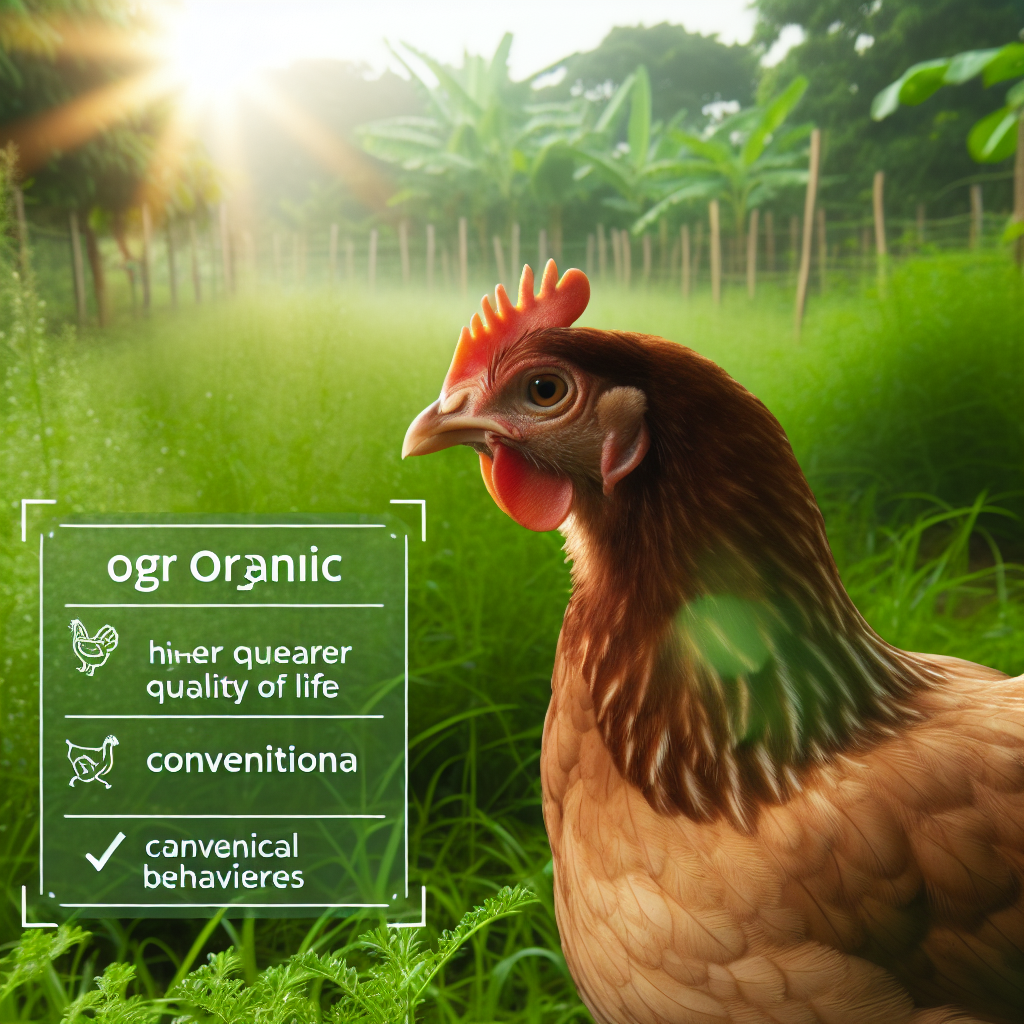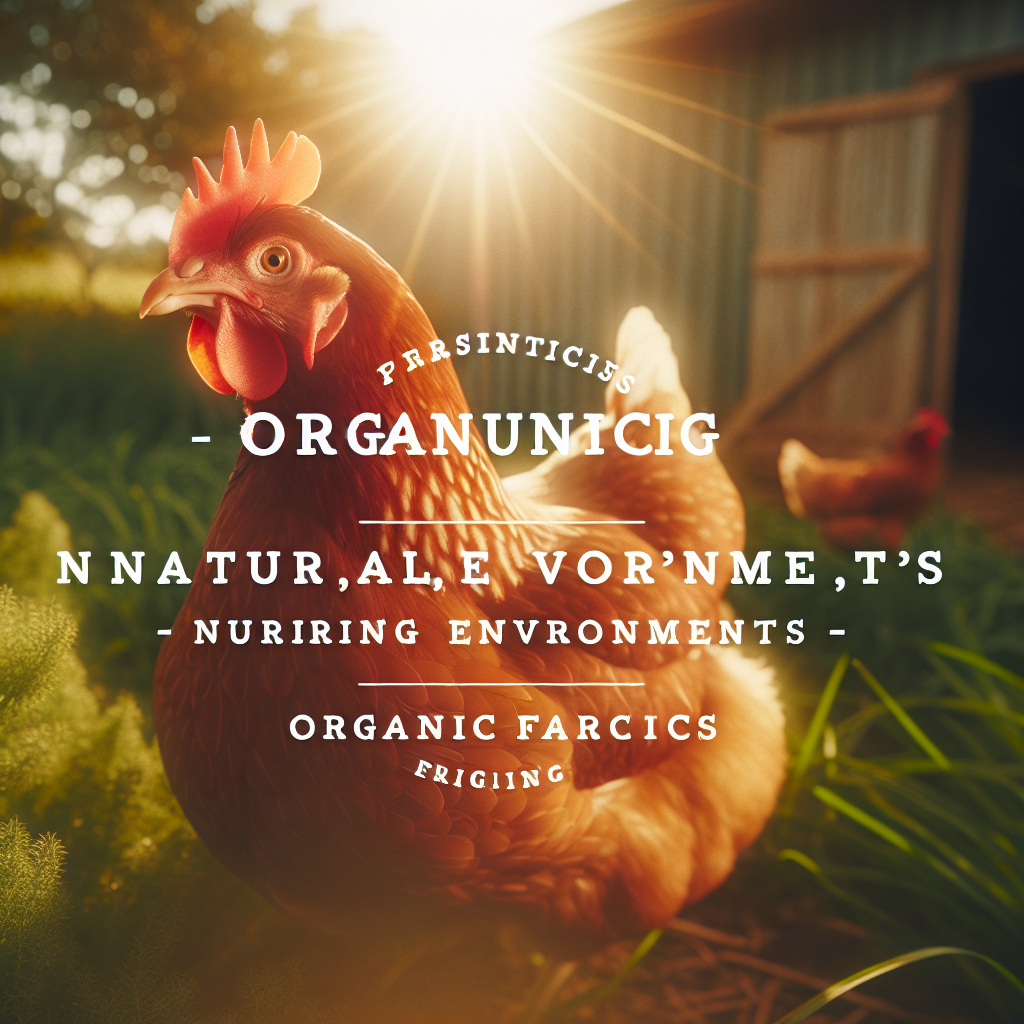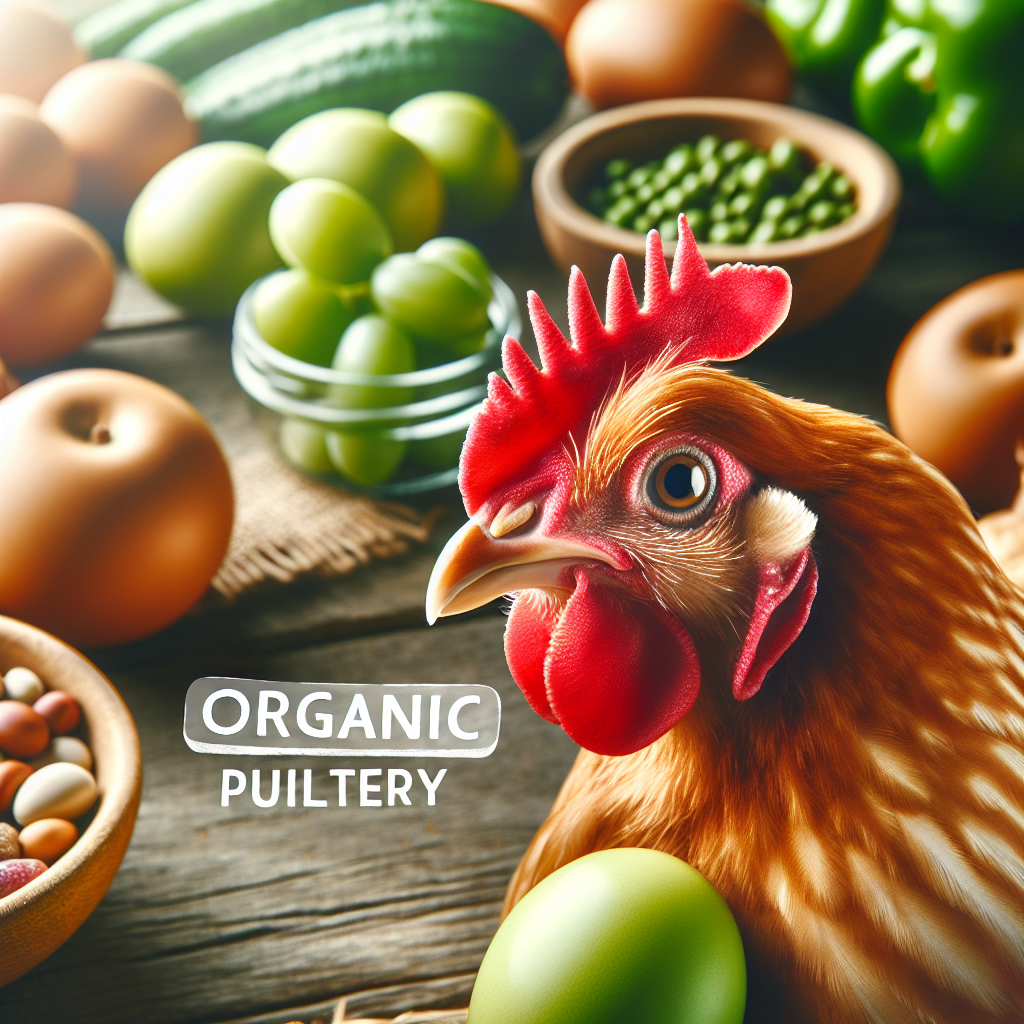In your quest for maintaining organic practices, it is essential to consider every step of the process, including breeding and hatching. Breeding and hatching play a crucial role in creating sustainable and healthy organic farms. By implementing certain strategies and following specific guidelines, you can ensure that your breeding and hatching practices align with organic standards. From providing a natural environment to selecting organic feed, this article delves into practical tips that will help you embrace organic practices from the very beginning.
Choosing Organic Breeding Stock
When it comes to breeding organic livestock, one of the first steps is to seek out certified organic breeders. These breeders have gone through the necessary steps to obtain organic certification, ensuring that their breeding practices align with organic standards. This certification provides assurance that the breeding stock has been raised in accordance with organic principles and has not been exposed to synthetic chemicals or genetically modified organisms (GMOs).
In addition to seeking out certified organic breeders, it is important to research their breeding practices. This includes understanding the breeding techniques they use, such as natural mating or breeding methods. Organic breeding programs should prioritize natural and sustainable methods that do not rely on artificial interventions or hormone treatments.
Inspecting the breeding facility is another crucial step in choosing organic breeding stock. Take the time to visit the facility and observe the conditions in which the animals are kept. Look for signs of cleanliness, proper ventilation, and lighting that mimics natural conditions. A well-maintained and organic facility will provide a healthy environment for the animals, promoting their overall well-being.
Ensuring that organic feed and supplementation is provided to the breeding stock is essential. Organic feed should be sourced from certified producers who do not use synthetic pesticides, herbicides, or fertilizers in the growing process. This ensures that the animals are not exposed to harmful chemicals and that their diet is free from GMOs. It is also important to evaluate the supplementation practices and ensure that any supplements given to the breeding stock are also organic and free from synthetic additives.
Lastly, evaluating the health and welfare of the breeding stock is crucial in choosing organic breeding stock. Animals should be free from any signs of disease or distress and should have access to appropriate veterinary care when needed. Organic breeding programs prioritize the well-being of the animals and ensure that they are raised in an environment that allows them to express their natural behaviors.
Designing an Organic Breeding Program
Once you have chosen your organic breeding stock, it is time to design an organic breeding program. This involves selecting appropriate breeding techniques that align with organic principles. Natural mating or breeding methods should be implemented, avoiding artificial insemination or other reproductive interventions.
Organic breeding programs prioritize the natural reproductive capabilities of the animals and seek to enhance their ability to reproduce without artificial interference. By selecting appropriate breeding techniques, you can ensure that the breeding process is as natural and organic as possible.
Maintaining Organic Conditions in the Breeding Environment
To maintain organic conditions in the breeding environment, it is important to use organic materials for facilities and equipment. This includes using organic bedding, such as straw or wood shavings, and avoiding materials that have been treated with synthetic chemicals or pesticides. Organic materials provide a safe and natural environment for the breeding stock, promoting their health and well-being.
In addition to using organic materials, it is important to avoid the use of synthetic chemicals and pesticides in the breeding environment. These chemicals can be harmful to the animals and can contaminate the organic breeding process. Instead, opt for natural pest control methods, such as companion planting or biological control, to keep pests at bay.
Proper ventilation and lighting are also key factors in maintaining organic conditions in the breeding environment. Provide natural ventilation and lighting that mimic the natural conditions the animals would experience in their natural habitats. This will help to promote their overall health and well-being and create a more natural and organic breeding environment.
Monitoring and Managing Organic Breeding Processes
Regularly assessing the health of the breeding stock is crucial in organic breeding programs. This includes closely monitoring the animals for any signs of disease or distress and taking appropriate action when necessary. Regular veterinary check-ups and preventative measures can help to ensure the health and well-being of the breeding stock.
Tracking and documenting breeding performances is also important in organic breeding programs. This includes keeping detailed records of breeding dates, successful matings, and any other relevant information. This documentation will not only help to monitor breeding outcomes but also provide valuable information for future breeding decisions.
Controlling disease and pest outbreaks naturally is essential in organic breeding programs. Instead of relying on synthetic chemicals or antibiotics, organic breeders utilize natural methods to prevent and manage diseases and pests. This can include practices such as quarantining sick animals, implementing biosecurity measures, and incorporating natural predator-prey relationships to control pest populations.
Ensuring Natural and Organic Incubation Process
When it comes to incubation, choosing organic methods is important for maintaining organic practices. Organic incubation methods prioritize natural processes and avoid artificial intervention whenever possible. This includes using organic incubation materials, such as natural fibers or organic cotton, and avoiding the use of synthetic disinfectants.
Monitoring temperature and humidity naturally is crucial in ensuring a successful incubation process. This can be achieved through natural ventilation systems or by adjusting the incubation environment to mimic natural temperature and humidity fluctuations. By providing the optimal incubation conditions naturally, you can ensure the health and well-being of the developing embryos.
Using naturally derived disinfectants is also important during the incubation process. Avoiding synthetic chemicals and opting for organic disinfectants helps to prevent the introduction of harmful substances to the developing embryos. Natural disinfectants can include substances such as vinegar or hydrogen peroxide, which are safe for both the embryos and the environment.
Sourcing Organic Breeding Inputs
In order to maintain organic practices, it is crucial to source organic feed and supplements for the breeding stock. Finding reliable sources of organic feed and supplements is essential to ensure the purity and certification of these inputs.
Organic feed should be sourced from certified producers who follow organic regulations and standards. This ensures that the feed is free from synthetic pesticides, herbicides, and GMOs. Organic supplements should also be sourced from certified producers to guarantee that they are free from synthetic additives or growth promoters.
Avoiding genetically modified organisms (GMOs) is another important consideration in sourcing organic breeding inputs. Organic breeders should prioritize non-GMO feeds and supplements to maintain the integrity of the organic breeding process and provide the breeding stock with a natural and healthy diet.
Implementing Organic Breeder Nutrition
Optimizing organic feed composition is crucial for providing the breeding stock with a balanced and nutritious diet. Organic breeders should carefully select feed ingredients that meet the nutritional requirements of the animals and ensure that the feed composition is free from synthetic additives or antibiotics.
Balancing the nutritional requirements of the breeding stock is essential in maintaining their overall health and reproductive capacity. Organic breeders should consult with nutrition experts or veterinarians to formulate a feed ration that meets the specific needs of their animals.
Avoiding antibiotics and growth promoters is a fundamental principle of organic breeding. By providing a healthy and natural diet, organic breeders can promote the well-being of the breeding stock without relying on artificial interventions. This helps to maintain the organic integrity of the breeding process and ensures that the animals are raised in a natural and sustainable manner.
Promoting Natural Breeding Conditions
Providing ample space and freedom of movement is crucial in promoting natural breeding conditions. Organic breeding programs prioritize the well-being of the animals and ensure that they have enough space to engage in their natural behaviors. This includes providing adequate space for mating, nesting, and roosting, depending on the species.
Creating natural nesting and roosting areas is important to promote the breeding behavior of the animals. Organic breeders should provide appropriate nesting materials and structures that mimic the conditions the animals would encounter in the wild. This helps to create a natural and comfortable environment for the animals to breed and raise their offspring.
Maintaining suitable environmental conditions is another key factor in promoting natural breeding. This includes providing the appropriate temperature, humidity, and lighting conditions that align with the natural needs of the animals. By mimicking their natural habitat as closely as possible, organic breeders can encourage natural breeding behavior and optimize the reproductive success of the breeding stock.
Implementing Natural Pest and Disease Control Measures
Regularly cleaning and sanitizing breeding areas is essential in organic breeding programs. This eliminates potential breeding grounds for pests and diseases, reducing the risk of outbreaks. Organic breeders should utilize natural cleaning agents, such as vinegar or citrus-based cleaners, to maintain a clean and sanitary environment for the breeding stock.
Utilizing natural predator-prey relationships can be an effective method of pest control in organic breeding programs. For example, introducing beneficial insects that prey on pests can help to keep their populations in check without the use of synthetic pesticides. Organic breeders should incorporate these natural pest control methods to maintain the organic integrity of their breeding process.
Implementing organic pest control methods is another important aspect of natural pest management. This can include practices such as crop rotation, companion planting, or utilizing natural deterrents like neem oil or diatomaceous earth. These methods help to minimize pest damage without relying on synthetic chemicals, thereby preserving the organic nature of the breeding process.
Certification and Compliance with Organic Standards
Understanding and complying with organic regulations is crucial in maintaining organic practices during the breeding and hatching processes. Organic breeders should familiarize themselves with the specific standards and requirements set forth by organic certification bodies in their region. These standards cover various aspects of organic breeding, including the use of organic inputs, breeding practices, and record-keeping.
Keeping thorough records is an important part of certification and compliance with organic standards. Organic breeders should maintain detailed records of breeding dates, health assessments, feed and supplementation practices, and any other relevant information. These records provide a transparent account of the breeding process and serve as evidence of compliance with organic standards.
Seeking organic certification from appropriate authorities is the final step in ensuring organic practices during the breeding and hatching processes. Organic certification provides third-party verification that the breeding operation meets the necessary standards and requirements for organic production. This certification not only adds value to your products but also gives consumers confidence in the organic integrity of your breeding program.
In conclusion, ensuring organic practices during the breeding and hatching processes requires careful attention to every aspect of the operation. By choosing certified organic breeders, implementing natural breeding methods, maintaining organic conditions, monitoring and managing the breeding process, and sourcing organic inputs, you can create a truly organic breeding program. Promoting natural breeding conditions, implementing natural pest and disease control measures, and complying with organic certification standards further enhance the organic integrity of your breeding operation. By following these guidelines, you can contribute to sustainable and environmentally friendly agriculture while providing consumers with organic and healthy products.




